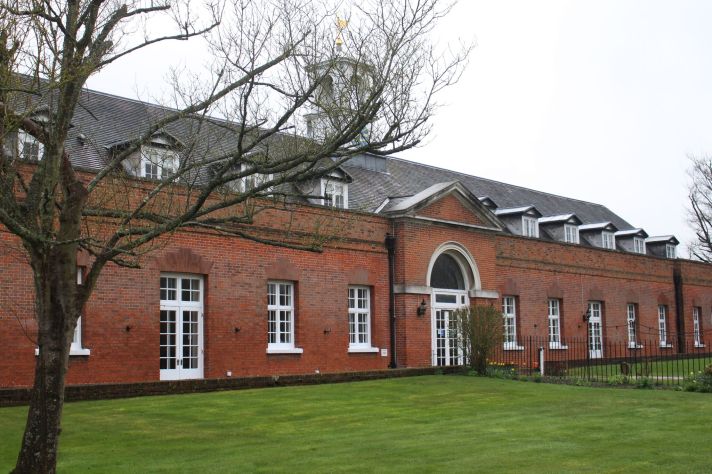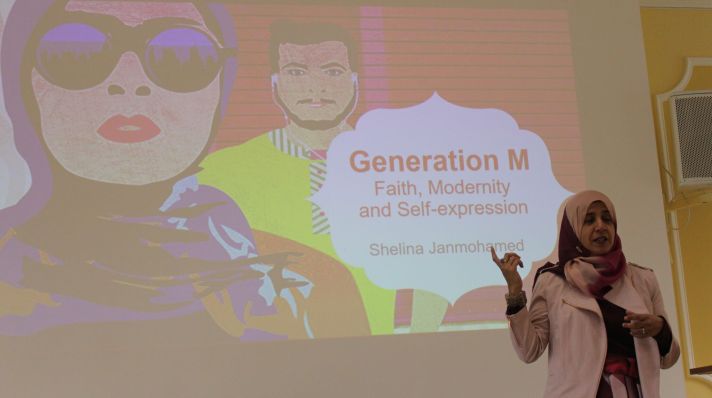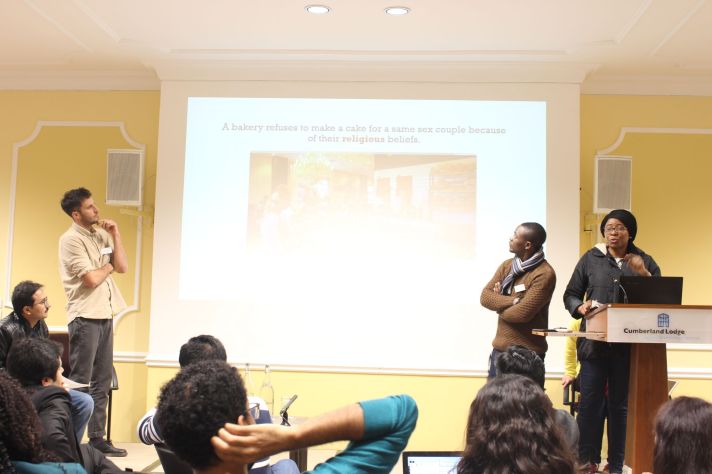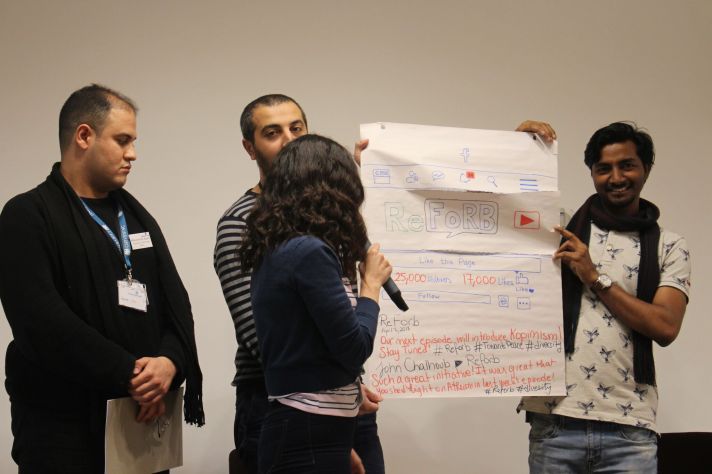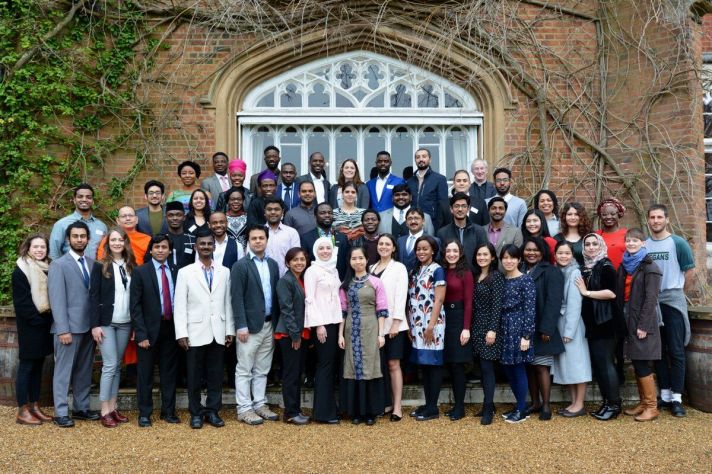(I wrote this without any means to discourage us, it’s just a reflection of how many of us forgot that we’ve been blessed with so many privileges, we started to look down on people)
There was an interesting debate last night on Twitter on what I titled: “kicking away the poverty ladder”. Basically, people on twitter-verse were talking about hard work and innovation being the 2 most important formula of getting away from poverty, of being successful. This whole thread started with one woman, who successfully overcome her money-lacking life through excelling in education, making sure that her dreams never fade, persistence in her work and at the end, BAM! she made it to the top of her career.
It sounds like a Cinderella kind of story (minus the prince charming). It may turn into a hit if somebody made it into a Netflix movie.
But then, I was so intrigued by this issue, I can’t simply let it slide.
Probably because I was so infected by Poor Economics, an amazing book by Banerjee and Duflo (they also did their research in Indonesia, btw). This book described that not only poverty is hard to define, but also not that easily to overcome.
It is not always each individual problem, but something structural beyond their power, that lead them to wherever they are right now.
Poverty and road to be successful, in fact, is not that simple.
You can’t “just” kick your poverty-stricken life with merely hard work and innovation. This is by no mean that both are trivial. Both are EXTREMELY essential for making it through our life, but, in my truly humble opinion, poverty is much more than that.
There are so much more within our life whether it was socially or culturally-construct, that led to so many privileges we have now earned.
That in case one variable in our life changes, the future might not be the same.
I’ll take an example of my own father.
He was born in a rural village called Tana Tombangan, located in South Tapanuli, North Sumatera. He is the last children out of 6. His mother was a clove farmer who owned a small farming land. While making it through his basic education, my father helped his mother on managing and harvesting his family crops.
55 years later, out of my grandmother’s children, 2 made it to the capital city, escaping poverty trap, whilst the rest still live in the village, barely living above poverty line.
So, what made the difference? What kind of factors made my father kicked away his poverty ladder while others don’t? Yes, his determination towards success may be one of the major factors that made him success in life, and he managed to win scholarships to cover his education fund, but is that all?
Let’s start with the obvious one. Gender.
When “gender equality” statement was not even there 50 years ago, a family especially in rural areas considered girls merely as a helper in the family and a potential baby-maker in the future, making cooking-cleaning-serving as their must-have capabilities to survive in life. That is why, parents who had more children than their fair share of income, tend to prioritize their boys than girls to go to school.
And as you can guess, 3 of my grandma’s children who didn’t make it through the poverty line, are women.
Moreover, it is not only the matter of parental choice of who’s going to school. It is also the manner of gender definition and worth in the eyes of different cultures.
The way each gender roles were implicitly defined in their boxes of responsibilities.
Maybe my aunts understood that their roles in the future are limited as housewives and the mothers of their future children. That they will have “men” to fuel their house with money. That learning bunch of theories in the school won’t give them any means because their future is already set (and maybe the things they learned in school doesn’t give them a clear design of other possible future?)
They grew up with no expectation on their own abilities, no pressure from their own families either, so they stopped going to school at certain point. Meanwhile, boys were going to school because they know there are people, especially their families, who are looking for their supports in the future. Maybe, just maybe, his education will change the future of their family.
This socially-construct “push”, at the end, made my father survive poverty.
Then on another point, Health.
Just what if, what if, back then my grandmother suffered from health problem that badly needs professional treatment. Or an endemic such as dengue fever, stroke the entire villages, they must set aside part (maybe bigger part) of their income for healthcare purposes. There’s no such thing as universal healthcare insurance back in the days, so they may end up hiring healers, if they hatedgovernment-owned institutions that were famous for overcharging their patients, but the bigger possibilities are these healers even charged them more than they could.
In other case, my single-parent grandmother probably never knew simple strategy on preventing diseases, such as bed net or free vaccination, or menstruation pads, that may save her and her entire family from outbreak or diseases.
A sudden added expense in their already-so-tight income, may lead to my fathers being pulled out of school and worked as a full-time farmer so that he can help covering the medical expense.
But then, my grandma lived for a considerably healthy life. My father didn’t need to stop his education to help his mother or take his mother to hospital. He didn’t have to be entangled with loan shark, who probably will mess up his concentration on school he just couldn’t be a diligent student he turned out to be today.
Another factor, the fate of their business.
My grandmother has made great choices in her life in terms of businesses: she chose clove, instead of other crops like paddy, where the price of clove on those days remain high as an impact from tobacco demands that increase significantly each year. She also diversified her business, opened small stall in front of her house that sold varieties of necessities. She invested her money on gold, as it was the only way that she knew to save her money for her children.
Then, just what if, my grandma’s crops suddenly infected from weird crop diseases, because they don’t invest (and don’t have enough money) in fertilizer. Failing in her agriculture businesses, she would end up with no money to provide her family let alone trying to extend her source of income, then what would she do?
She will (again) start looking for loan.
Do you understand how hard it was to find institutions that will give you loan with reasonable price in rural areas back then, or even now? Do you know how hard it was for farmer with just small amount of land that is failed to produce something, to find help from formal financial institution?
Then the only option there is loan shark, isn’t it? It’s easy, it’s there, they probably your close relatives you knew were loaded. With no skills on calculating how much interest she should pay for each loan, taking the first loan may mean the neverending debt, passed on to generations to generations, and the cycle of poverty goes on.
But those cases didn’t end up happening.
They were just a small example of how some people have different faith from others. There are still so much more I haven’t discuss yet, how my father was born not in a discriminated-race that forced him to live in an exile, for instance, or other things in his life that he didn’t personally choose, he just born into it.
In the bitter fact, there are people who clearly relied on “bigger hand” if they wanted to get away from poverty. The people who, if they have access to universal healthcare insurance, free vaccine, a fair-financial institution, or IF there are counselings on the importance of fair treatment to every gender, or simply flyers and free training on how to grow crops, then maybe, the faith of their life can change dramatically.
We never realize how things that we thought didn’t matter, after all, was everything that others in different side of the world, dreamed of.
They are in fact, the redemption from their life’s misery.
I made this reflection on the fact that, yes, I’m totally privileged. I grew up with both parents who, despite their hard childhood, they made sure I can satisfy my thirst of learning. But I tried my best (still do) not to look down on people, simply because they don’t work hard enough. There are tons of reasons behind every man’s problem.
Let us then be thankful for our privilege and acknowledge them; they can be in various forms: being a social majority, being born in economically stable family, being born in a year where gender equality has come to term, or simply being healthy.
Because things were totally different if we don’t have that.
By acknowledging them, hopefully you and i can work harder, strive for better, without looking down on people. Instead, we can lift each other up, help others to give solutions on things that they simply couldn’t get a grip on by their own hand.
To be Develop is to be given a freedom, after all (Quoting the awesome Mr Sen).
Freedom to live up to our upmost potential.

